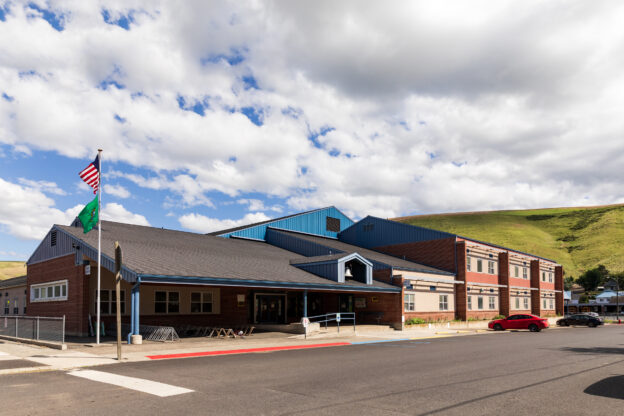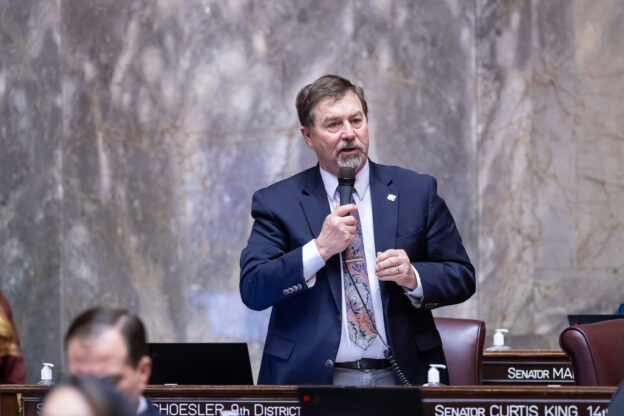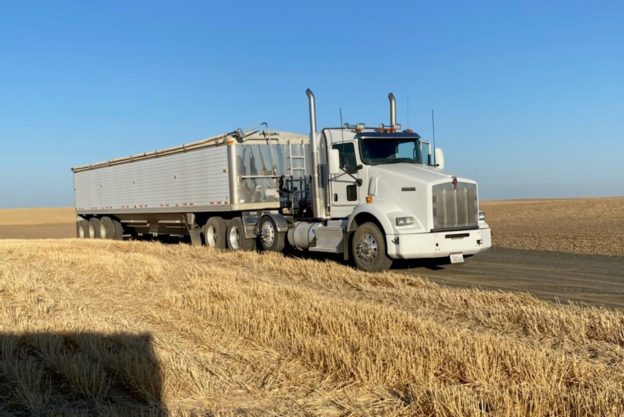The version of the 2023-25 state capital budget unanimously passed today by the Senate would address both statewide needs and local projects, says 9th District Sen. Mark Schoesler.
“The Senate’s capital budget would respond to needs all throughout Washington, and provide funding for important projects in a wide variety of categories, from education and public safety to housing and water and more,” said Schoesler, R-Ritzville and the Republican lead on the Senate capital budget. “I’m pleased this budget would support many projects that will help our colleges and universities, and I’m especially glad to see money for school seismic-safety grants, which is important since our state is in earthquake country. I’m also pleased by the funding for water-supply projects, which would benefit agriculture and other water users. The Senate’s capital budget takes a statewide approach, as it should, but it also funds several projects in the 9th District.
“This is a true bipartisan capital budget in which Republicans and Democrats worked together for the good of Washington. I’m pleased with it both from a local perspective and how it would help the state overall,” added Schoesler, who has worked on the Senate capital budget since 2021.
The Senate capital budget would provide $1.2 billion for higher education, including funding for projects at Washington State University and Eastern Washington University, both in the 9th District. It also would provide significant funding to water-supply projects in the Columbia, Yakima and Chehalis River basins.
The Senate plan also would offer funding for two State Patrol crime labs, as well as the construction of criminal justice training centers in Spokane, Bellingham and Clark County so that law-enforcement officers can receive needed training closer to home. The Senate spending plan also includes $625 million for housing-related investments.
The WSU projects include:
- Engineering Student Success Building construction ($40 million)
- Eastlick-Abelson Hall renovation ($22 million)
- Infrastructure improvements at Knott Dairy Farm, source of the milk for Cougar Gold cheese ($10 million)
- Bustad Hall renovation ($8 million)
- Clean building standard energy efficiency improvements ($5 million)
The EWU projects include:
- Science Department renovations ($58 million)
- Minor preservation projects ($16.75 million)
- Rozell Plant upgrade ($12 million)
- Martin-Williamson Hall ($350,000)
Several small school districts in the 9th District would receive funding from the Senate capital budget for planned projects:
- Asotin/Anatone School District ($35,000)
- Davenport School District ($25,000)
- Garfield School District ($33,000)
- Kahlotus School District ($38,000)
- Oakesdale School District ($38,000)
- Starbuck School District ($33,000)
Other school districts in the 9th District receive Senate capital budget funding for actual projects:
- Davenport School District ($2.186 million)
- Dayton School District ($5 million)
- Sprague School District ($5 million)
Two 9th District projects would receive Heritage Capital Grant funding through the Senate capital budget:
- Cheney Depot phase 4 work involving the train viewing platform ($22,000)
- Pullman Depot Heritage Center restoration ($237,000)
Three projects in the district receive Washington Wildlife Recreation Program funding:
- Zakarison Farmland protection ($249,000)
- Asotin Creek Wildlife Area access points ($153,000)
- Asotin Creek Wildlife Area campgrounds ($280,000)
There are four district projects that receive Youth Athletic Facilities funding:
- Pomeroy ball field lighting installation ($350,000)
- Pomeroy football field improvements ($350,000)
- Colfax pool upgrade ($350,000)
- Touchet Valley Golf Course irrigation ($143,000)
Other 9th District projects funded by the Senate capital budget include:
- Colfax Pool ($706,000)
- Dishman Hills Conservancy Education Center site planning in Spokane ($46,000)
- EWAM handicap parking improvement project in Pomeroy ($98,000)
- Latah water system rehabilitation project ($180,000)
- Lincoln County Fair and Livestock ($1 million)
- Whitman County Fire Recovery ($961,000)
- Ritzville Legion Hall renovation ($165,000)
- Ritzville Theater ($75,000)
- Washtucna Town Hall ($20,000)
- Coyote Ridge Corrections Center’s modular building for health service staff ($428,000)
The House of Representatives will unveil its capital budget proposal next week. Once the House passes its budget plan, Schoesler will meet with other Senate and House capital budget writers to reach agreement on a final version before the legislative session ends on April 23.















